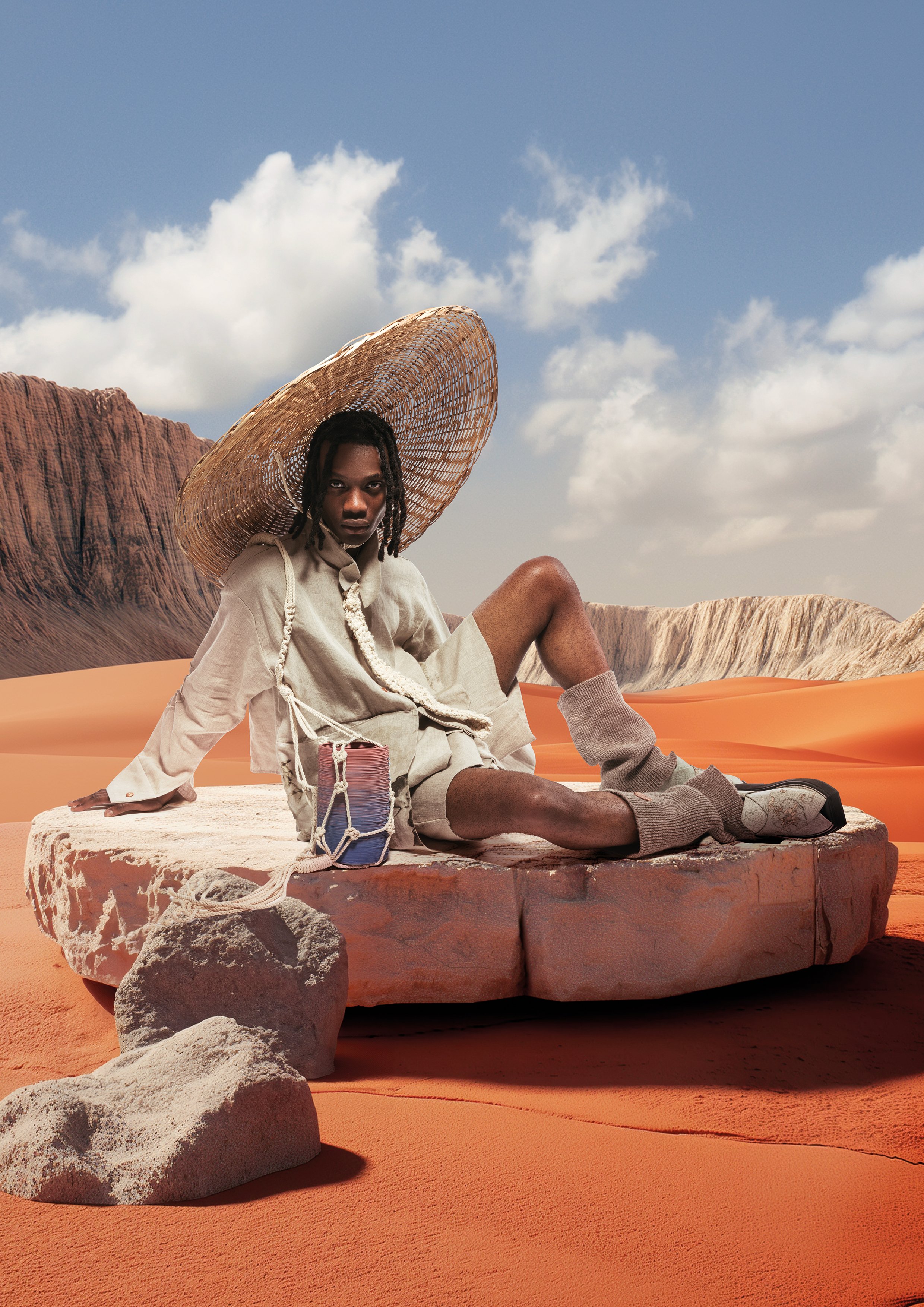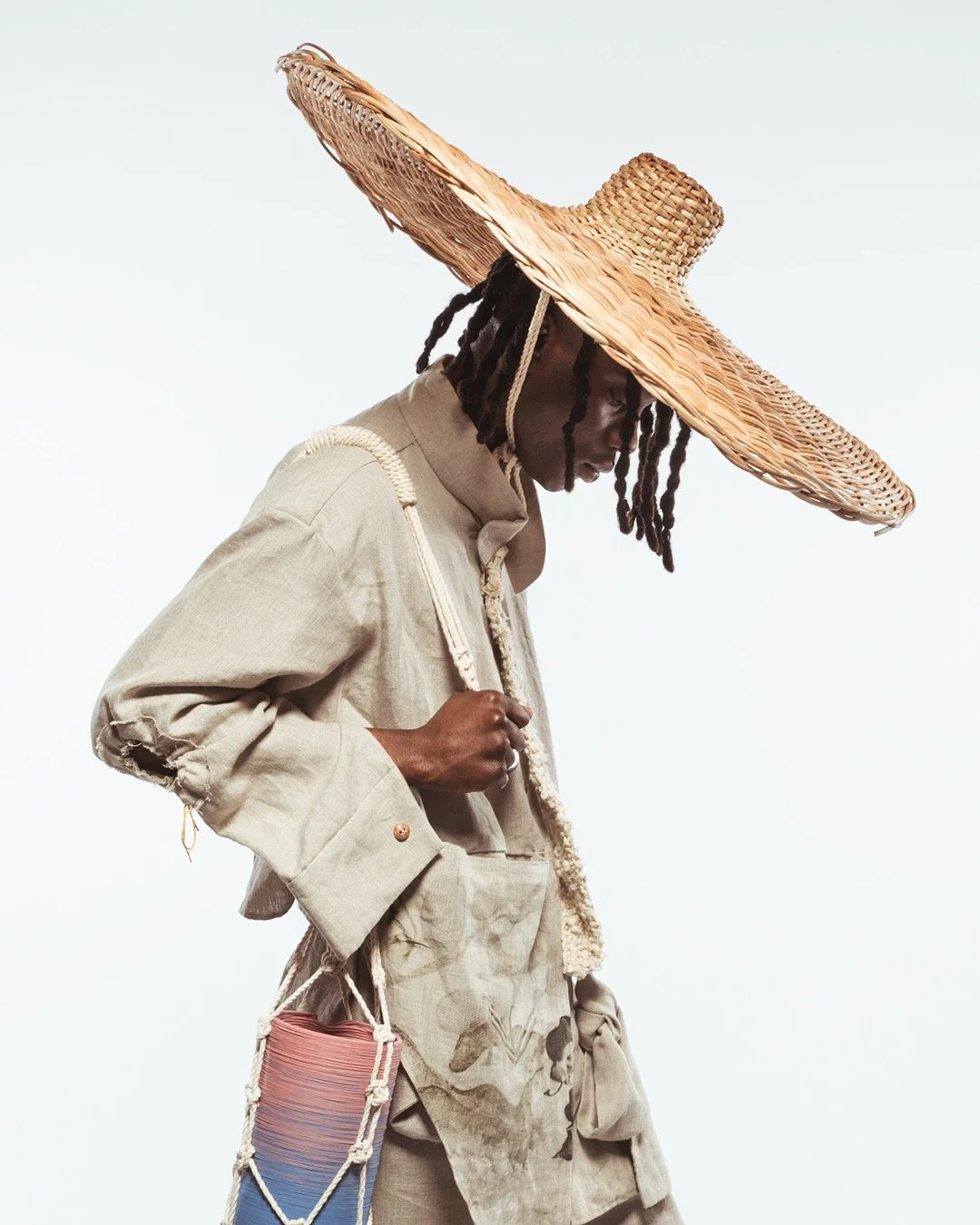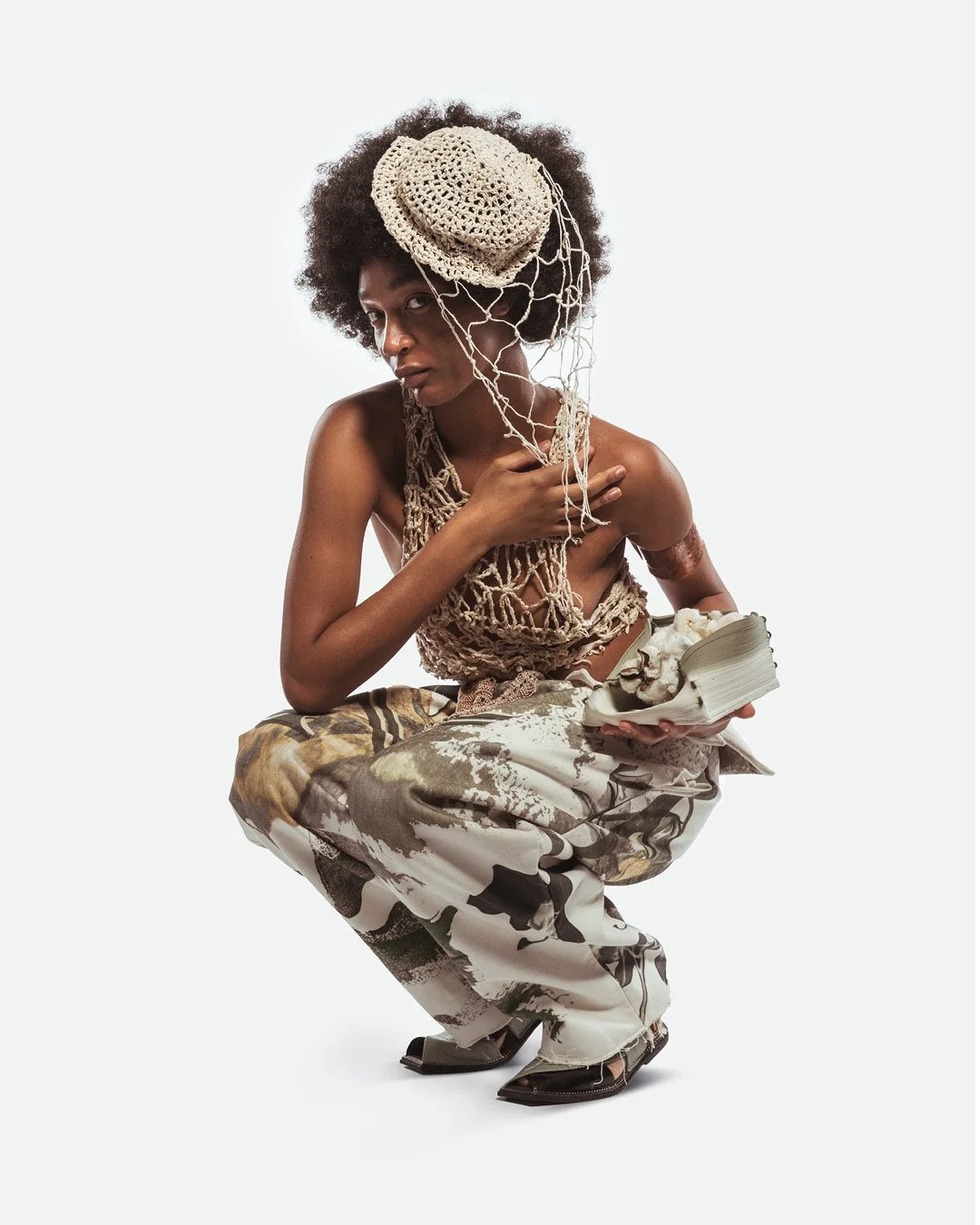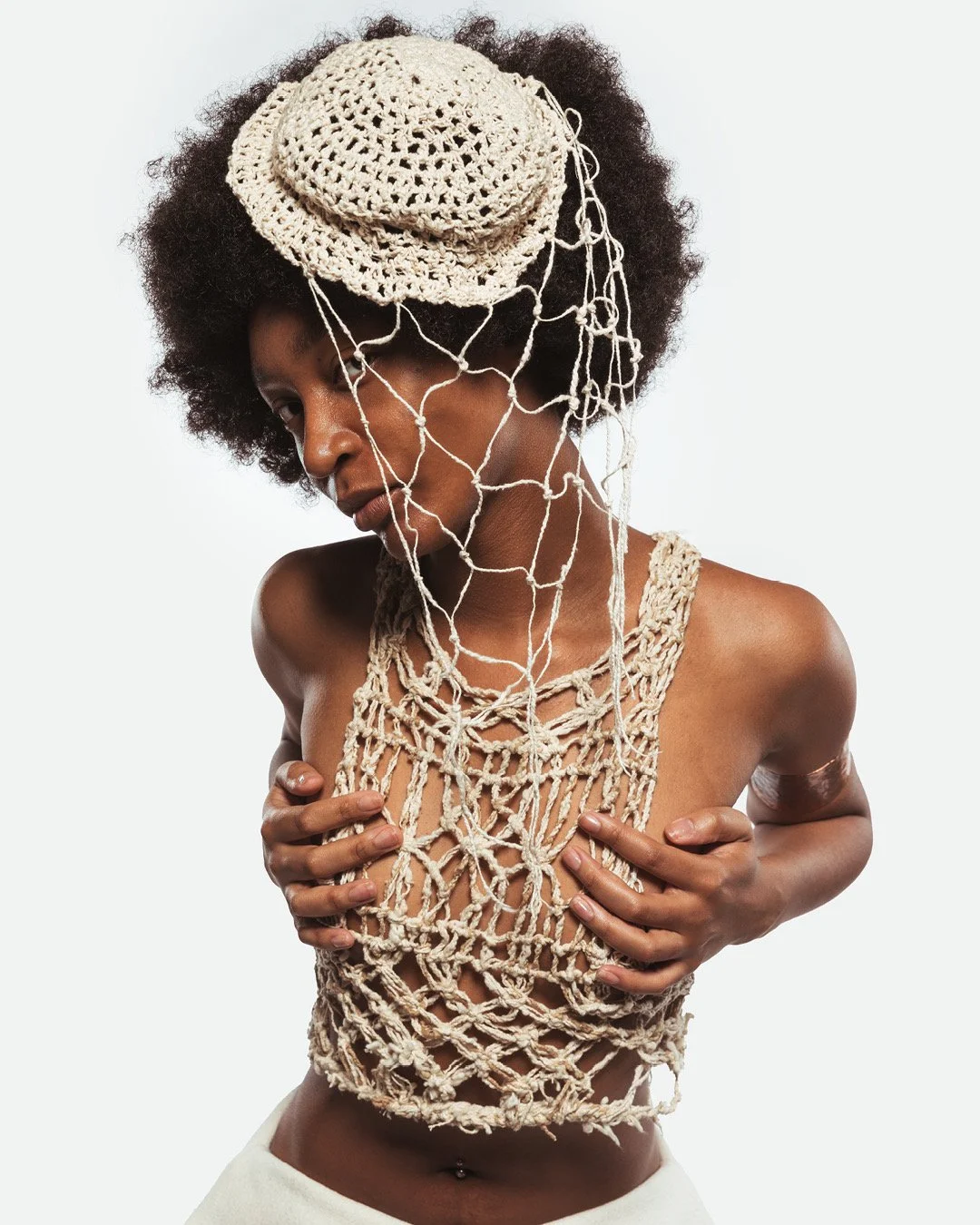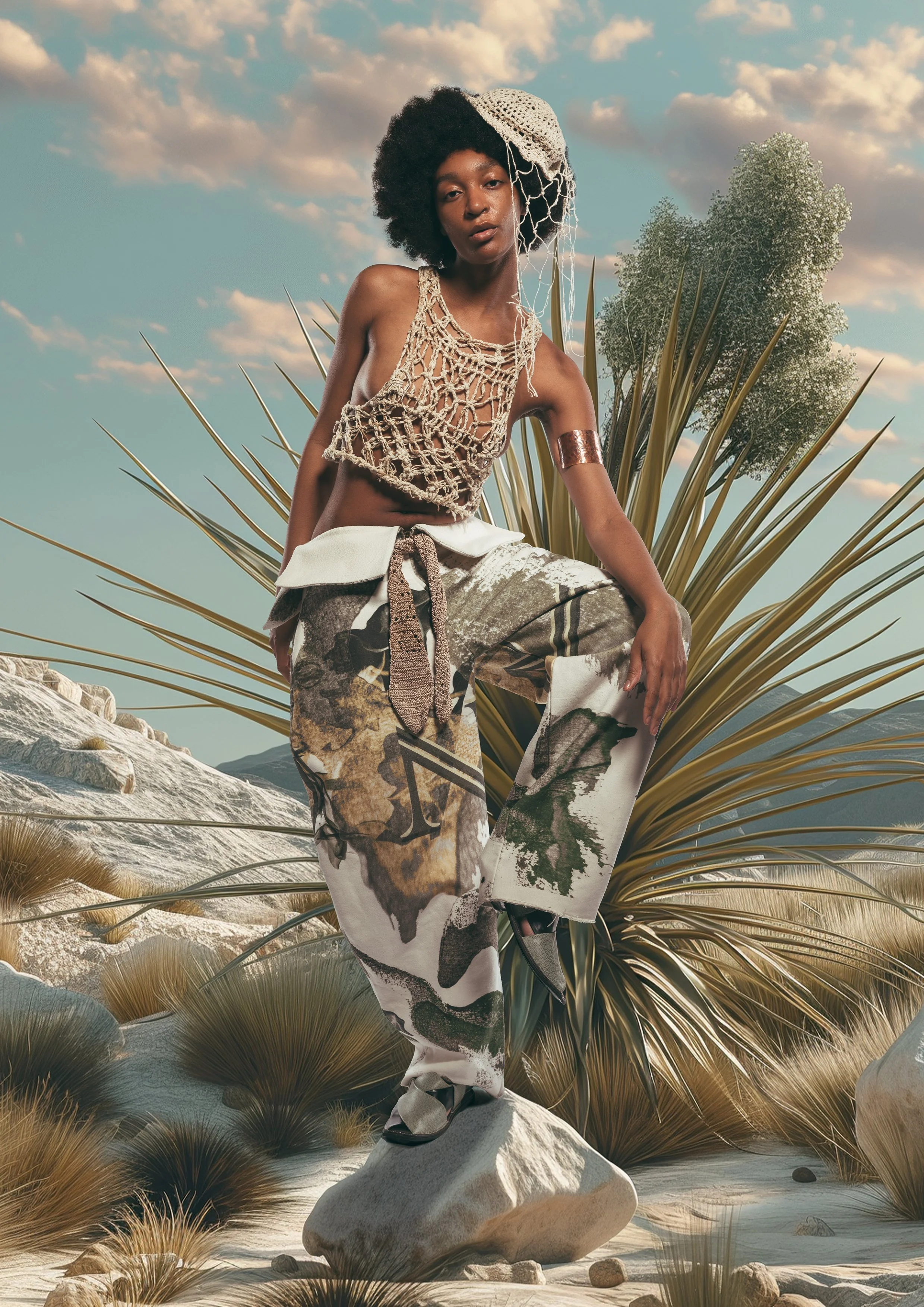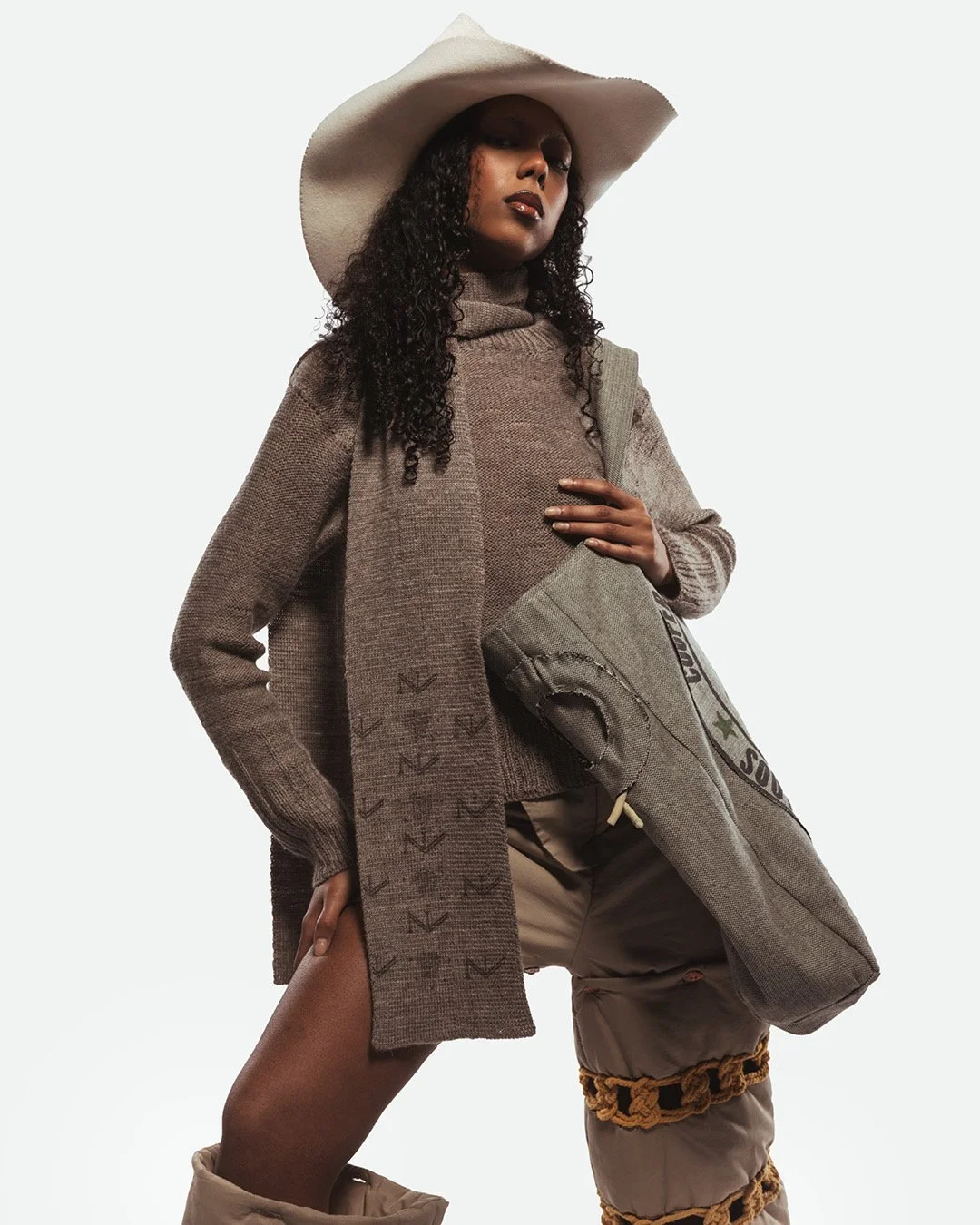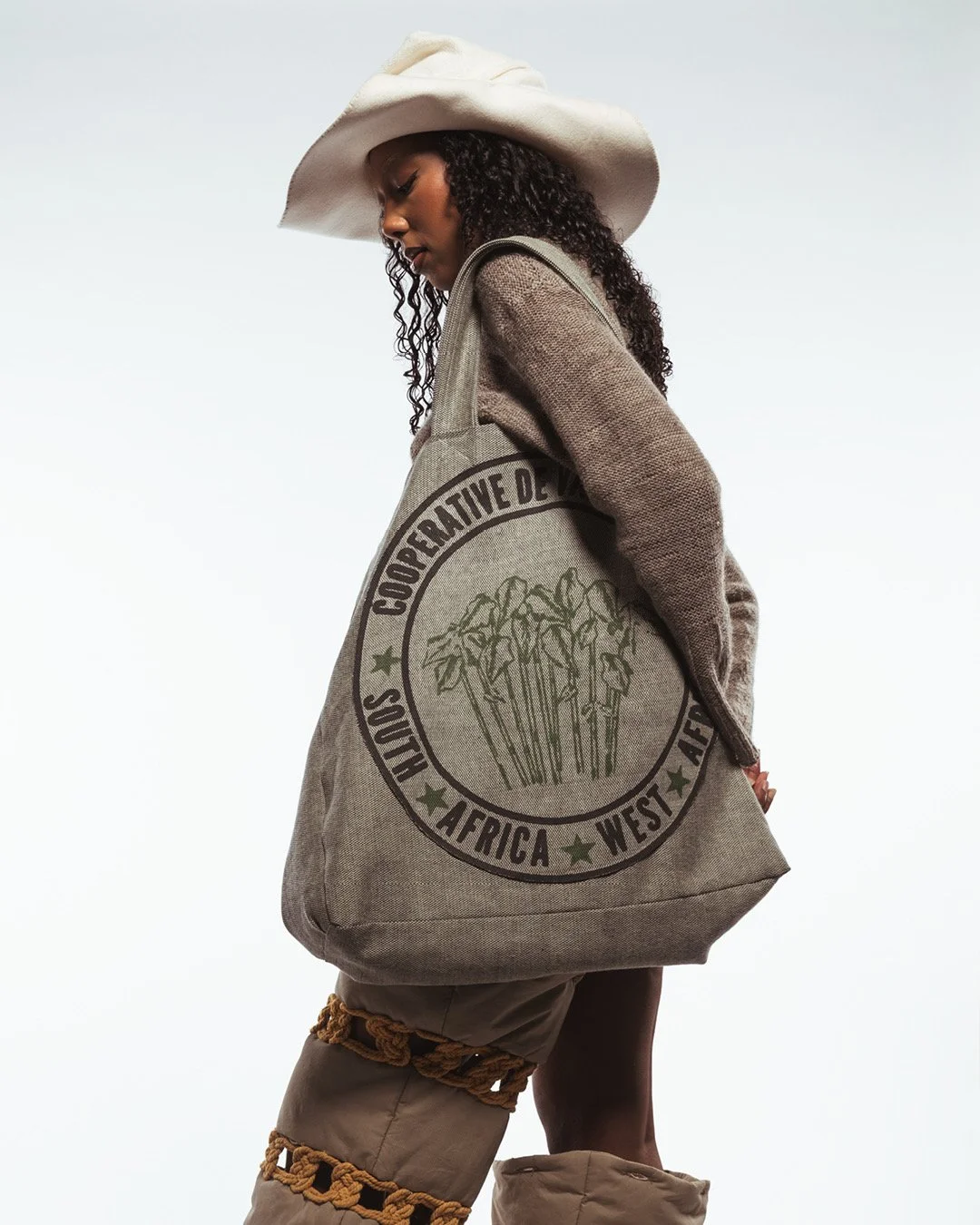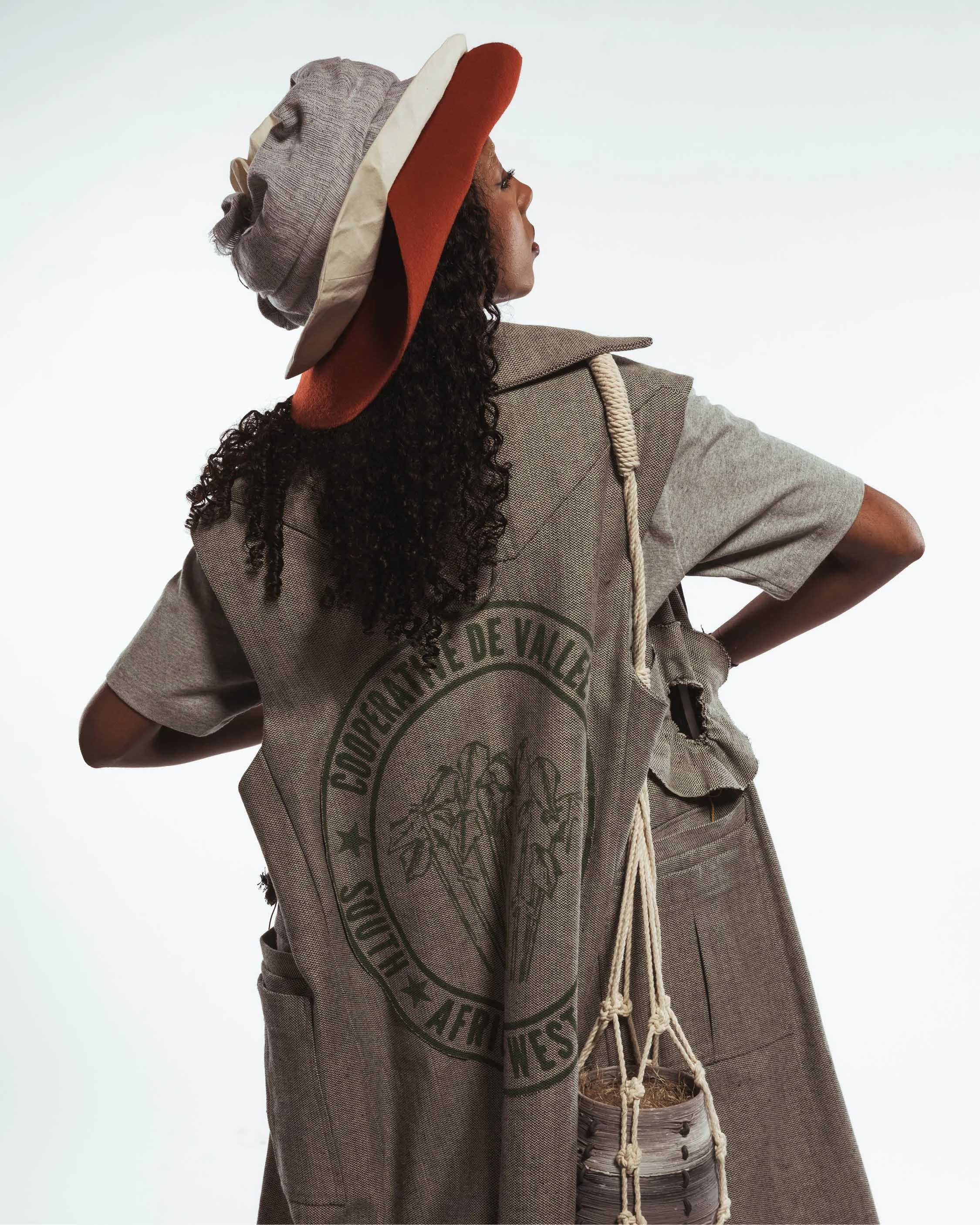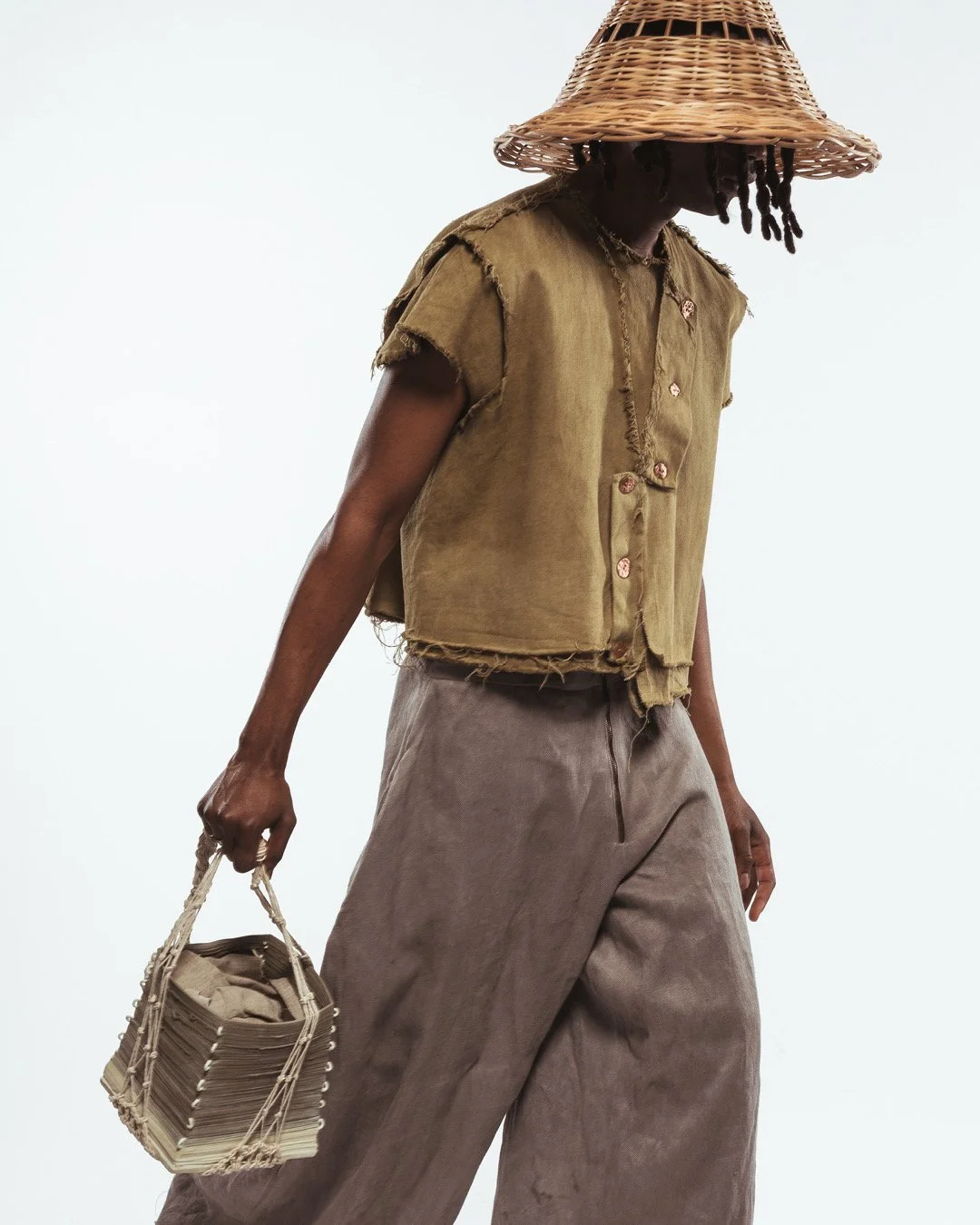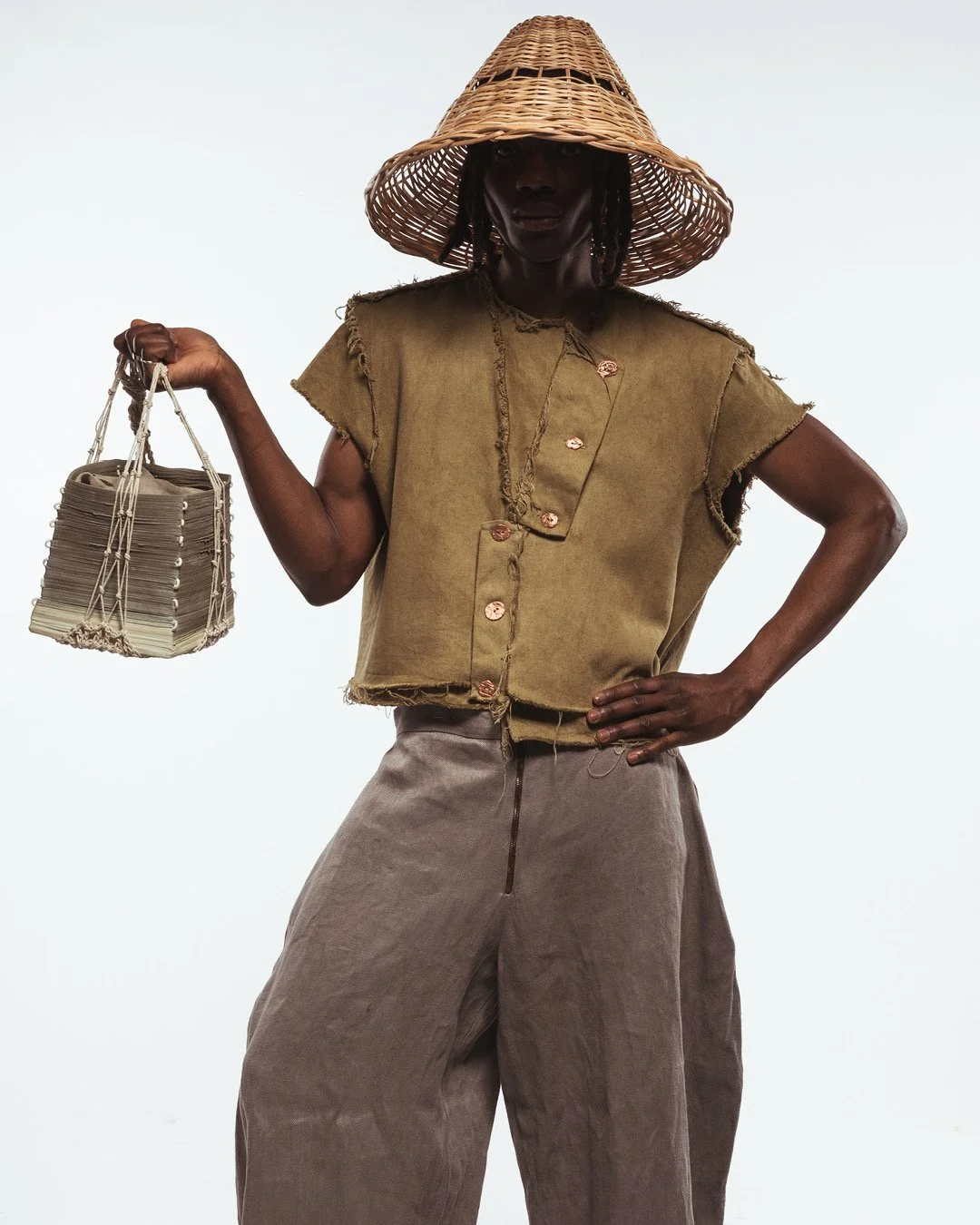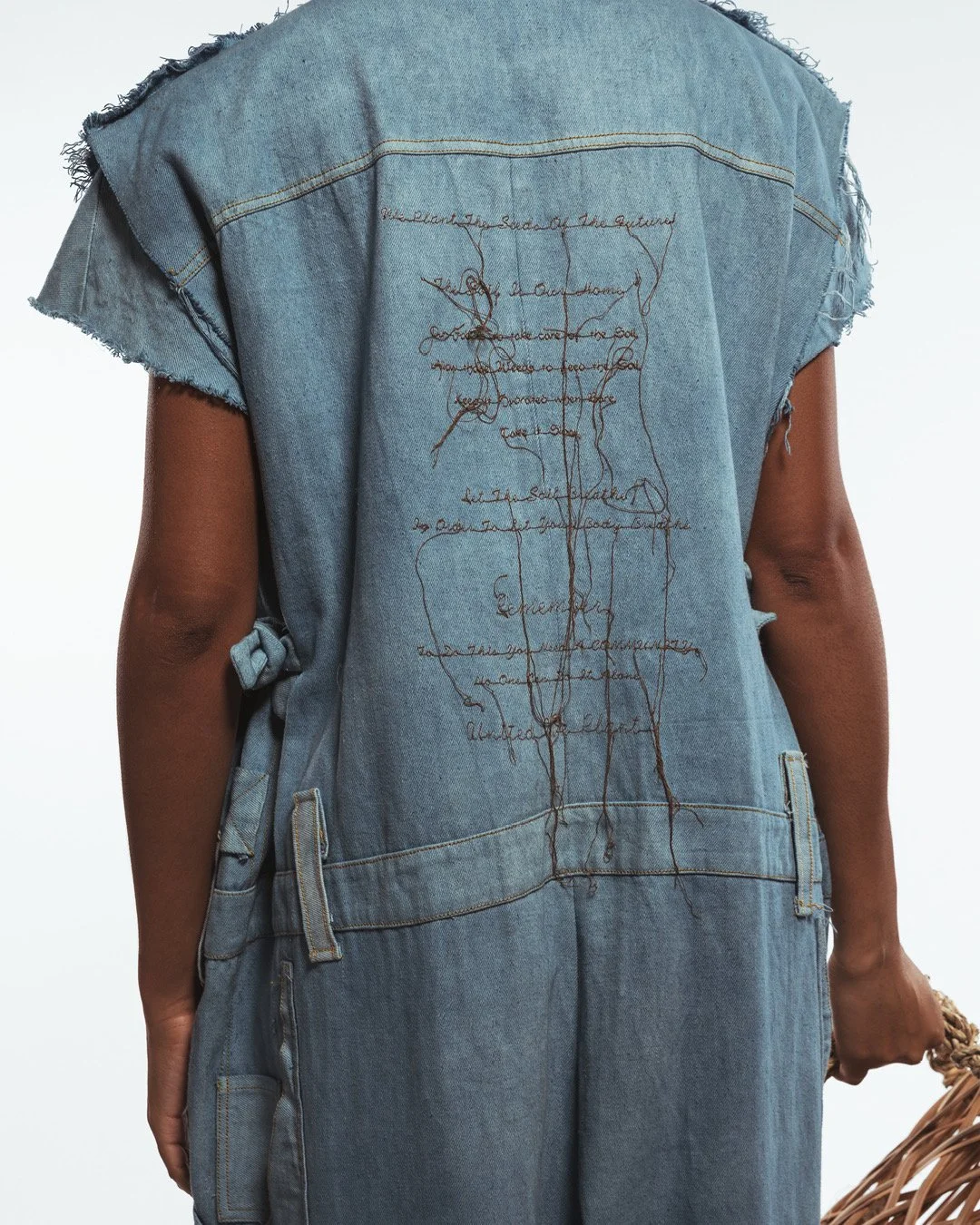MAKING OF SONWÊRELD
Gracey Owusu Agyemang’s collection SONWÊRELD is the product of two brands, Vallèe Noire, an African agriculture-focused brand, and DIJÁGO Studios, a luxury Afro-Asian brand, co-founded with Khudija Zaib. Closely working with Khudija, The multidisciplinary designer is on a mission to redefine luxury through agriculture, while regenerating the soil and restoring the earth. Owusu-Agyemang taps into her Western and South African roots, using Afro-futurism to inform her work.
For Gracey, Afro-futurism means evaluating the past to inform the future in order to create better earth conditions, as well as multiple identities of being for Black and African people. In her work, she reimagines life within African environments that are minimally modernised and preserve traditional practices of agriculture while acknowledging the digital world.m
For this collection she has been growing regenerative cotton in her native country, Zambia, since August 2023, which she harvested at the beginning of this year. She grew 170 plants in her backyard which were overseen by her farmer gardener while she went back to London for her MA. It was then hand spun by Lara Lopez and hand crocheted into wearable pieces. “The essence of growing my own cotton regeneratively is to attract the youth into practising agriculture through film and a ‘COOL’ girl aesthetic which looks appealing to the younger generation seeking to change the world,” she says.
But it’s not just about growing her own cotton. For SONWÊRELD, Gracey was committed to making the collection as sustainable and biodegradable as possible. All her garments can biodegrade in 2 - 6 months, and actively contribute to soil health, by pulling out toxins and feeding it carbon & nutrients. In order to achieve this, she used only natural fibres and botanical dyes. For fabrics, she used ethically sourced and 100% traceable pure hemp, hemp denim, organic cotton, regenerative cotton, regenerative wool, and hemp linen. To dye her clothes, she used only natural dyes which consisted of natural indigo with alum mordant, red onions with iron water and cutch with iron water.
Her opening look was constructed of 100% hemp linen with eco-pigmented DTG print, hand-crochet organic cotton tie, handmade copper fastenings, and enhanced by collaboration with artisans that encapsulate her ethos: handwoven hat constructed by artisan weavers in Ghana and handmade Chappals by artisan shoemakers from Pakistan. Tying together the concept of Afro- futurism that underpins her collection, the look also showcased a 3D printed ceramic vessel by spatial designer and artist, Nhan-Nhi Lillian Nguyen. Her work seamlessly accompanies the collection through its play on the human-digital interaction: she weaves coiled clay in her 3D printed ceramics, celebrating presence of humanity into the man-made machine.

